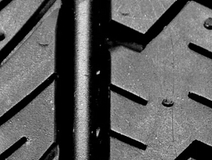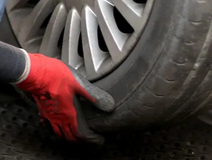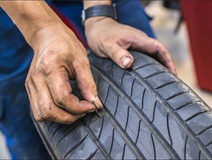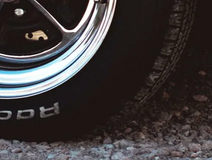
January 24, 2025
Your Guide to Preparing an Emergency Kit for Your Car
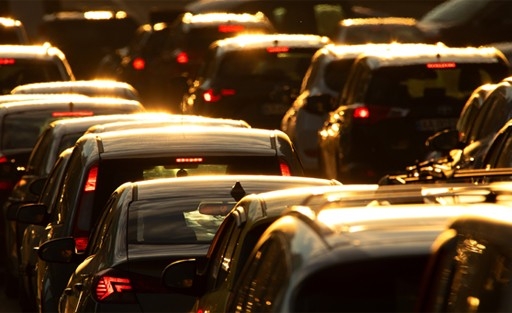
Road emergencies can happen anytime—whether it’s a sudden breakdown, bad weather, or a flat tyre. While you can’t always avoid these situations, you can prepare to handle them effectively, saving time, money, and stress.
A simple yet effective way to stay ready for a driving crisis is by keeping an emergency kit in your car. You can customise its contents based on your needs, but some items are non-negotiable. Let’s dive into the essentials you’ll need to stay safe and comfortable on the road.
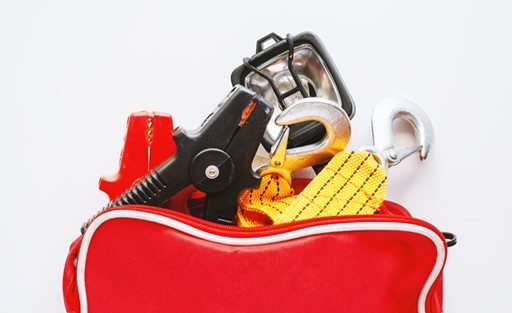
What is a Vehicle Emergency Kit?
An emergency kit is a collection of essential items that helps you and your passengers stay safe and secure until outside assistance arrives. It offers peace of mind and readiness for a variety of on-road situations.
Emergencies can happen at any time and anywhere. Here are some common causes:
- Mechanical issues, such as a flat tyre, a broken headlight, and problems with steering, braking, transmission and many others
- Gridlock
- Running out of petrol
- Sudden weather changes
What Should Your Vehicle Emergency Kit Contain?
An emergency kit should cover all aspects of safety, comfort, and minor repairs. Below, we’ve categorised the must-have items to make it easier for you.
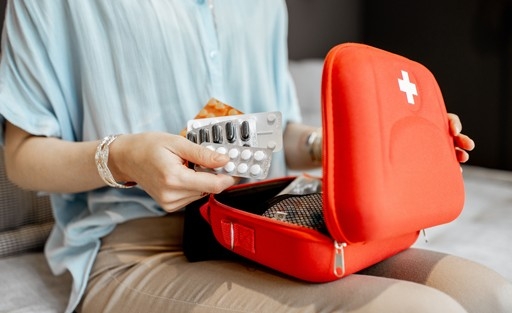
To Keep you Safe
• Mobile phone & charger
Having a way to contact emergency services, insurance providers, or roadside assistance is crucial. It also helps to notify family or friends of your situation.
• Power bank
A fully charged power bank makes sure your phone stays operational even if your car’s power source fails.
• Map or atlas
When digital maps fail due to weak coverage, an analogue map becomes invaluable. It gives you a sense of where you are and can help rescuers locate you faster.
• First-aid kit
This includes gauze, tape, scissors, antiseptic or antibiotic ointment, cold compress, soap, cleansing wipes, alcohol, aspirin, and other personal medications you need.
• Fire extinguisher
Cars can ignite due to mechanical failure, extreme temperatures and other causes. Having a fire extinguisher can prevent extensive damage and even save lives.
• Warning triangle
Covered with a highly reflective material, this bright orange triangle warns drivers of a stationary vehicle ahead. This alerts them to slow down and avoid hitting your car.
• Reflective vest
This comes in handy when you're stranded in the dark and need to walk to find assistance. This way, motorists can see and avoid you.
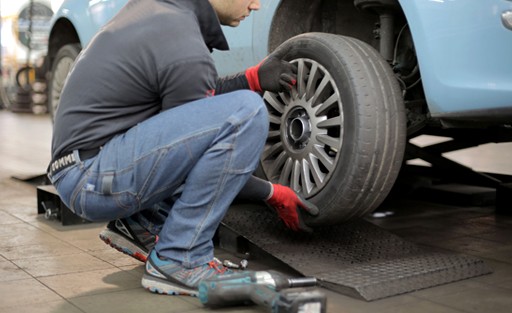
To help you make emergency repairs
• Tyre-changing kit
Pack all the essentials for changing a flat or damaged tyre. Include a jack, lug wrench, and a properly inflated spare tyre. Wheel chocks are also essential to stabilise your car while changing tyres. Read our 10-step guide in changing tyres to learn more.
• Jumper cables with alligator clamps
These wires are a lifesaver when your battery dies, especially in an isolated area. While these can revive your battery, it's still best to have it checked for possible replacement.
• Flashlight with working batteries
Helps you see clearly while inspecting the engine, conducting repairs, or finding items in the dark.
• Multi-tool
A versatile tool like a Swiss army knife can assist with minor fixes.
• Gloves & rags
While gloves protect your hands, rags clean grimy automotive parts so you can better assess them. They also help you clean up after a repair.
• Duct tape
Because duct tape is sturdy and waterproof, you can use it to bind components, patch up leaks, and keep damaged parts in place—temporarily, of course.

To give you relief
• Water for drinking
Staying hydrated is essential while waiting for help. Avoid exposure to the sun to prevent heat stroke.
• Non-perishable food
Keep sealed snacks that are high-energy. Examples are dried fruits, nuts, trail mixes and granola bars.
• Blanket
While a good-sized blanket can keep you (and a companion) warm and toasty during cold weather, it can also act as a shade against the sun's sweltering heat.
• Extra clothes
A change of clothes is essential in keeping you warm and dry during the rainy season, and it also prevents you from getting sick, which worsens your situation.
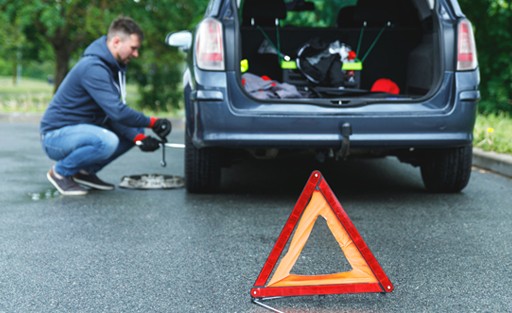
More Tips to Keep You Safe & Comfortable
- Keep a list of emergency numbers in your car.
- Make sure your spare tyre is always correctly inflated.
- Check used items if they need to be replaced.
- Fully charge your phone before any journey.
- Monitor the weather and postpone your drive if conditions are unfavourable.
- Refuel before driving through isolated areas.
- Drive with caution near big vehicles.
- Conduct regular vehicle and tyre checkups.
Also read: Your Complete Guide To Tyre Rotation
Keep Safe!
As a driver, tyre maintenance is a must. Always check if your tyres have enough tread to maintain their grip and other safety capabilities. Instead of buying second-hand tyres, opt for brand-new ones that guarantee optimum performance. If you're worried about overspending—don't be! Tyroola has many tyre options, from premium to budget, to suit your needs.
Check out our tyre promos today!
